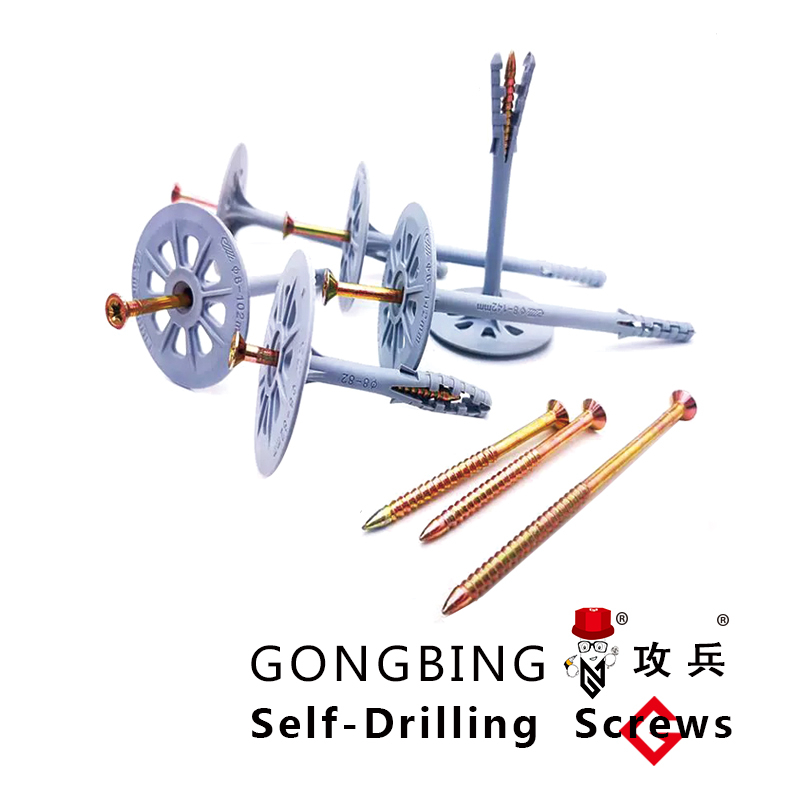expanding plastic screw anchors
Understanding Expanding Plastic Screw Anchors A Comprehensive Guide
Expanding plastic screw anchors are a versatile and practical solution for securing objects to various substrates, particularly when dealing with lightweight fixtures or installations. These anchors are designed for use in materials such as drywall, plaster, concrete, and masonry. Their unique design allows them to expand as a screw is inserted, providing a secure hold without the need for heavier metal anchors. In this article, we will explore the features, benefits, installation process, and applications of expanding plastic screw anchors.
Features of Expanding Plastic Screw Anchors
Expanding plastic screw anchors are typically made from durable high-density polyethylene or nylon, which allows them to withstand a reasonable amount of weight while being resistant to corrosion. The anchor is usually a cylindrical shape with a split or expandable design that allows for flexibility once the screw is driven in. The expansion occurs due to the flared end of the anchor, which spreads out against the walls of the drilled hole, creating a tight grip.
One of the significant advantages of these anchors is their lightweight nature, making them easy to carry and install. Additionally, they come in various sizes to accommodate different screw gauges, making them suitable for a wide range of applications.
Benefits of Using Expanding Plastic Screw Anchors
One of the most significant benefits of expanding plastic screw anchors is their ease of installation. Unlike heavy-duty anchors that may require tools and additional steps, these anchors can be installed using just a drill and the appropriate screwdriver. The simplicity of installation makes them an excellent choice for DIY enthusiasts and professionals alike.
Another benefit is their cost-effectiveness. Expanding plastic screw anchors are generally less expensive than metal counterparts, making them a budget-friendly option for various projects. Additionally, their lightweight design allows for less strain on the substrate, preventing potential damage.
expanding plastic screw anchors

These anchors are also non-corrosive, making them suitable for both indoor and outdoor settings. While they may not be ideal for heavy loads, they are perfect for hanging lighter items such as picture frames, shelves, and curtains.
Installation Process
Installing expanding plastic screw anchors is straightforward. Begin by selecting the appropriate size anchor for your screw. Next, drill a hole into the substrate where you intend to install the anchor—ensure that the diameter of the hole matches the specifications of your chosen anchor.
Once the hole is drilled, insert the expanding plastic screw anchor into the hole, ensuring it sits flush with the surface. Using a screwdriver or drill, drive the screw into the anchor. As the screw progresses, the anchor will expand, securing itself against the walls of the hole. It is crucial not to overtighten the screw, as this can lead to anchor failure or damage to the substrate.
Applications
Expanding plastic screw anchors are suitable for a variety of applications. They are commonly used in
- Residential projects, such as hanging wall decor or shelving. - Office environments, for mounting light fixtures or organizational tools. - Outdoor settings, for securing garden decorations or lightweight outdoor furniture.
In conclusion, expanding plastic screw anchors are a reliable, cost-effective solution for securing lightweight objects to different surfaces. Their ease of installation and non-corrosive properties make them an excellent choice for various environments and applications. Whether you are a DIY enthusiast or a seasoned professional, these anchors can simplify your installation projects and provide lasting support for your fixtures.
-
Weatherproof Plastic Expansion Anchors for OutdoorRongorongoJun.06,2025
-
Sustainability in the Supply Chain: Eco-Friendly TEK Screws ProductionRongorongoJun.06,2025
-
Load-Bearing Capacity of External Insulation FixingsRongorongoJun.06,2025
-
Double Head Bolts: Enhancing Efficiency in Industrial MachineryRongorongoJun.06,2025
-
Corrosion Resistance in Chipboard Screws: Coatings for Wholesale DurabilityRongorongoJun.06,2025
-
Butterfly Toggle Bolts : Enhancing Structural ResilienceRongorongoJun.06,2025
